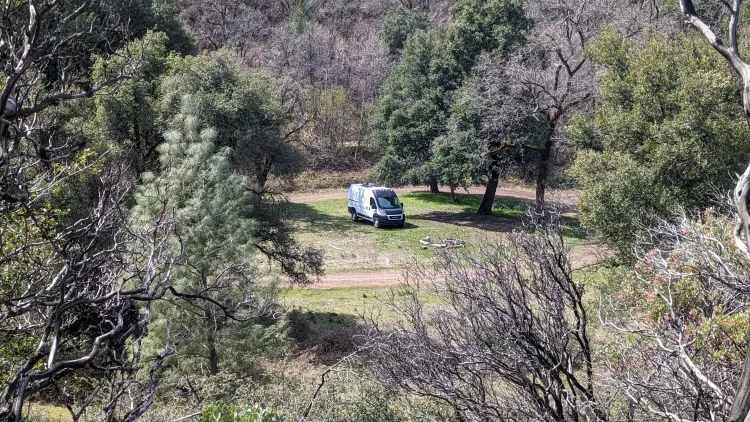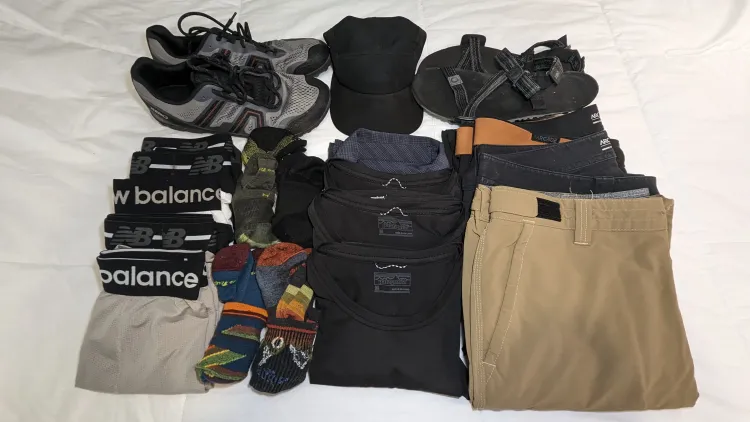Minimalism Meaning - It's About More Than Your Belongings

Minimalism is a way to live alternatively. Living this way enables one to own fewer items and acquire better experiences in life. There are many benefits to being a minimalist. Not surprisingly, they can be about more than material possessions.
Living as a minimalist is about more than what you own. As a minimalist, on top of owning only what you need, you also make conscious decisions about other aspects of your life. The impact you have on the world, the experiences you choose to have, and even the relationships you build are some non-materialistic aspects of minimalism.
Of course, one of the main ways people see minimalism is barren living rooms and empty closets. This is only one way of seeing how a minimalist chooses to live. While material minimalism is a part of it, it's not the complete picture.
Minimalism's Impact on the World
Minimalists can be more in tune with the impact they have on the world. On top of the choices of what you own, and avoiding needless consumerism, minimalists often make smarter choices that are better for the environment.
By not owning and spending money on things they don't need, minimalists often avoid purchasing items that they won't use. That turns into fewer sales of particular items, less production, then finally less use of materials. Consuming less means generating less waste. Of course, one person doesn't make a big impact, but a lot of people can create meaningful change.
One of the best ways for a minimalist to decrease their impact on the environment is to make conscious choices about transportation. By choosing a more cost-effective way to travel, it is possible to decrease environmental impact. For example, taking a bus rather than driving or flying can often be cheaper, and better for emissions. Similarly, riding a bike is a great way to decrease carbon emissions, save money, and stay healthy.
Of course, there are some trade-offs for sacrifices like this. Perhaps we lose time when we take the bus because it needs to make more stops. Sometimes the trade-off is the time we don't save. However, the benefit of decreased emissions and potential financial savings can make these sacrifices worth it.
Minimalists live in a way that can leave less of a carbon footprint. Choices like buying only the necessities decrease the overall use of resources. And choosing to take a more economical means of transportation can save money and improve one's health!
Minimalism and Experiences
Being a minimalist can also influence the experiences of one's life. Making conscious decisions on how you chose to spend your time can lead to a more fulfilling existence. The activities a minimalist chooses to pursue can be more rewarding if they find more meaning in them.
Time is our most valuable resource. Spending it wisely should be a priority for everyone. We should expend that resource on what makes us truly happy, and not what makes others happy. For example, if you don't enjoy spending time, money, and energy at the bar on Saturday night with your friends, then you shouldn't do that. Rather, you should invite friends over for a chill night of board games, or watch that highly anticipated horror movie you've been dying to see! Similarly, travelling to destinations only because it's trendy might not lead to actual enjoyment when you realize it's not actually how it was portrayed.
Minimalism can create a more peaceful existence when were not distracted by unnecessary things. We are more able to focus on our surroundings and have a better appreciation for it all. Foregoing the activities you don't enjoy can leave more time for the things you actually do. Pursuing a hobby, or travelling to a culture you're interested in are all possible when you simplify your time to what you will enjoy.
For me, I choose to pursue experiences that will bring me joy. I don't do activities because they're on someone else's top 10 in a city. If it interests me, I do it. There exists a gray area in this topic. Things like peer pressure can be beneficial in certain situations. Sometimes it's good to be pushed into something when it turns out to be something you enjoyed more than you thought you would.
Minimalist Relationships
Minimalism allows one to focus more on what brings them value, as opposed to what might not. Building and fostering meaningful relationships is something most people strive to do. Instead of having many superficial acquaintances, a minimalist might strive to have more deep connections with the people they surround themselves with.
It might be hard to juggle many friendships, acquaintances, and colleagues. Despite the sometimes professional requirement of networking, it is often easier and more rewarding to create deeper and more meaningful interactions with those that you want to. Sometimes it's easier to meet with fewer friends than at a dinner where there are many people all trying to talk over each other.
A minimalist might focus on spending more quality time with their loved ones, or close friends. Or perhaps they choose to simplify other aspects of their life to make more time for socialization. The priority here should be doing what makes you happy. If keeping in contact with old high school friends doesn't do that for you, then you shouldn't feel obliged to pursue that relationship. However, if you find it important to stay in contact, making time for them can be a rewarding experience.
For me, my introversion lends well to the concept of minimalistic relationships. Rather than many superficial friendships, I choose to have a few closer relationships. This allows me to not spend my time on relationships that I don't find value in, and foster more meaningful relationships with those that I do.
Conclusion
Minimalism can offer many other benefits than simply having a cleaner home and a chic aesthetic. We can have a better impact on the environment, make more fulfilling choices on how we spend our time and have more meaningful relationships with the people we care about.






Member discussion